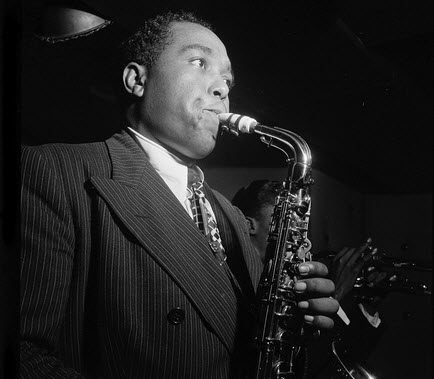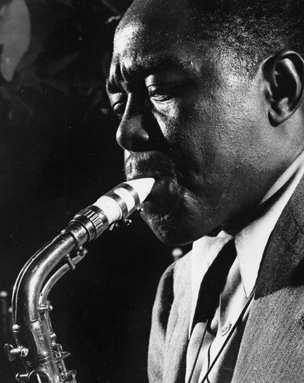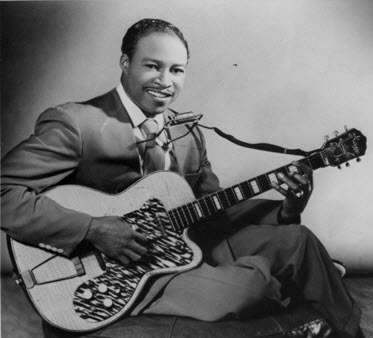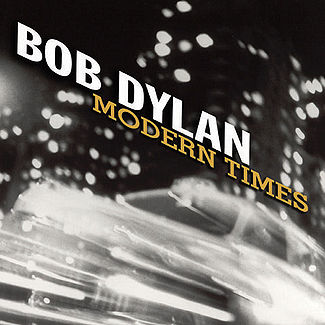From Wikipedia:
| Birth name | Charles Parker, Jr. |
|---|---|
| Also known as | Bird, Yardbird, Zoizeau (in France) |
| Born | August 29, 1920 Kansas City, Kansas, United States |
| Died | March 12, 1955 (aged 34) New York City, New York, United States |
| Genres | Jazz, bebop |
| Occupations | Saxophonist, Composer |
| Instruments | Alto saxophone, tenor saxophone |
| Years active | 1937–1955 |
| Labels | Savoy, Dial, Verve |
| Associated acts | Miles Davis, Max Roach |
Charles Parker, Jr. (August 29, 1920 – March 12, 1955), also known as Yardbird and Bird, was an American jazz saxophonist and composer.
Parker acquired the nickname “Yardbird” early in his career and the shortened form, “Bird”, which continued to be used for the rest of his life, inspired the titles of a number of Parker compositions, such as “Yardbird Suite“, “Ornithology“, “Bird Gets the Worm“, and “Bird of Paradise.”
Parker was a highly influential jazz soloist and a leading figure in the development of bebop, a form of jazz characterized by fast tempos, virtuosic technique, and improvisation. Parker introduced revolutionary harmonic ideas, including rapid passing chords, new variants of altered chords, and chord substitutions. His tone ranged from clean and penetrating to sweet and somber. Many Parker recordings demonstrate virtuosic technique and complex melodic lines, sometimes combining jazz with other musical genres, including blues, Latin, and classical.
Parker was an icon for the hipster subculture and later the Beat Generation, personifying the jazz musician as an uncompromising artist and intellectual, rather than an entertainer.
From allmusic.com – Scott Yanow:
One of a handful of musicians who can be said to have permanently changed jazz, Charlie Parker was arguably the greatest saxophonist of all time. He could play remarkably fast lines that, if slowed down to half speed, would reveal that every note made sense. “Bird,” along with his contemporaries Dizzy Gillespie and Bud Powell, is considered a founder of bebop; in reality he was an intuitive player who simply was expressing himself. Rather than basing his improvisations closely on the melody as was done in swing, he was a master of chordal improvising, creating new melodies that were based on the structure of a song. In fact, Bird wrote several future standards (such as “Anthropology,” “Ornithology,” “Scrapple from the Apple,” and “Ko Ko,” along with such blues numbers as “Now’s the Time” and “Parker’s Mood”) that “borrowed” and modernized the chord structures of older tunes. Parker‘s remarkable technique, fairly original sound, and ability to come up with harmonically advanced phrases that could be both logical and whimsical were highly influential. By 1950, it was impossible to play “modern jazz” with credibility without closely studying Charlie Parker. Read more -> allmusic.com
All the things you are:
I’ve Got Rhythm:
Album of the day – Jazz at Massey Hall (1953):
Other August-29:
- Mathis James “Jimmy” Reed (September 6, 1925 – August 29, 1976) was an American blues musician and songwriter, notable for bringing his distinctive style of blues to mainstream audiences. Reed was a major player in the field of electric blues, as opposed to the more acoustic-based sound of many of his contemporaries. His lazy, slack-jawed singing, piercing harmonica and hypnotic guitar patterns were one of the blues’ most easily identifiable sounds in the 1950s and 1960s, and had a significant impact on many rock and roll artists who followed, such as Elvis Presley, Billy Gibbons and the Rolling Stones.
- Modern Times is singer-songwriter Bob Dylan‘s 32nd studio album, released by Columbia Records in August 2006. The album was Dylan’s third straight (following Time Out of Mind and Love and Theft) to be met with nearly universal praise from fans and critics. It continued its predecessors’ tendencies toward blues, rockabilly and pre-rock balladry, and was self-produced by Dylan under the pseudonym “Jack Frost”. Along with the acclaim, the album sparked some debate over its uncredited use of choruses and arrangements from older songs, as well as many lyrical lines taken from the work of 19th century poet Henry Timrod.
- Charles Arthur “Charlie” Feathers (June 12, 1932 – August 29, 1998) was an influential American rockabilly and country music performer.
-Egil





